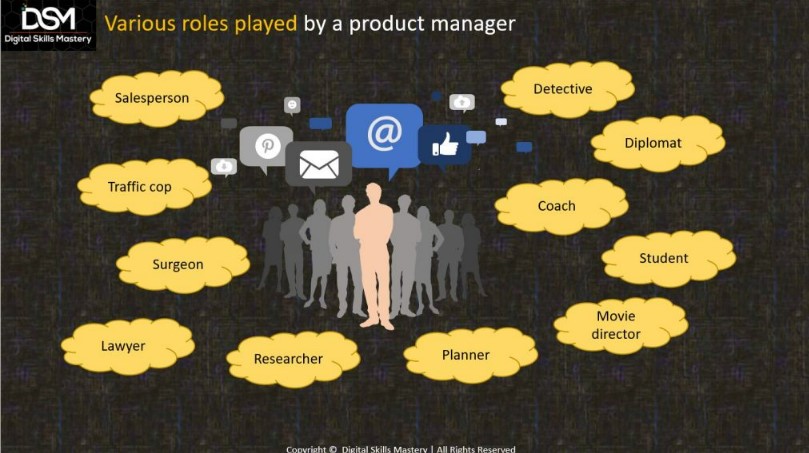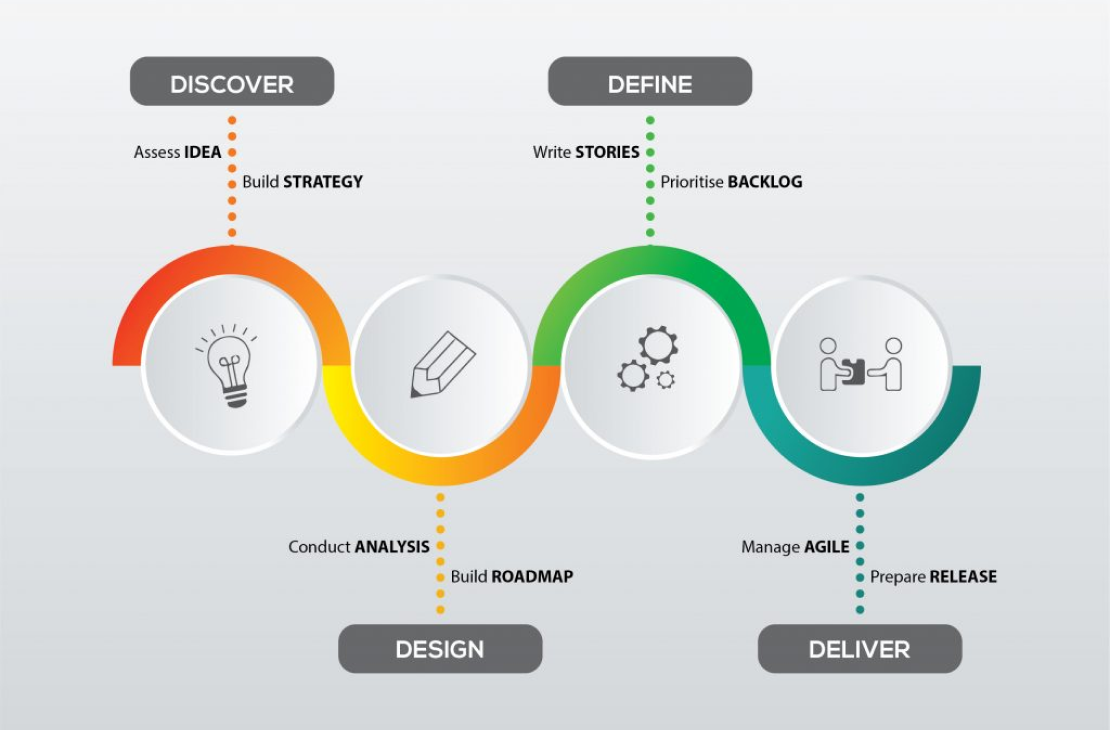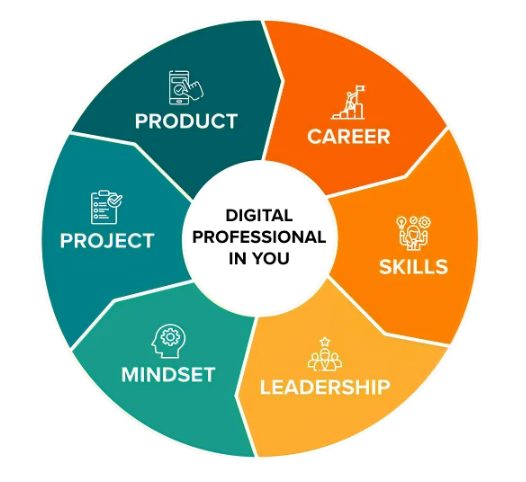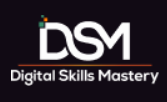Product manager roles
Being a product manager can be both exciting and demanding. It’s your responsibility to manage the care of the customer and your business stakeholders, as well as the senior management, product and development teams.
There’s lots of literature out there about the roles and responsibilities of the product manager, with some of it contradictory. So, let’s start by comparing it with the many other jobs people do to give you a true idea of what the job entails. As a product manager, handling a digital product, you will wear many hats. You will be:

Product manager roles in digital product management
1. A salesperson: you have the know-how to sell your solution and your ideas
In the Discovery phase, when you are preparing and presenting a business case to your stakeholders, you are basically selling the idea and features of your product to get approval. In the Design phase, when you are doing user research and talking to existing customers, you are again essentially selling while doing your job as a product manager. Like any adept salesperson, you have to do your research. You start by building a rapport: always think about what’s in it for them, show them the benefits and persuade them why they should buy-in. Remember, you are driven by the best interests of your customer, you are passionate about your product and you are the best spokesperson to talk about the product you are managing.
2. A traffic cop in Mumbai: you manage incoming items on the product backlog
If you replace vehicles with product backlog items such as bugs, tasks, features and change requests you’ll quickly get this comparison. During the Design and Define phases you oversee the flow of your product backlog, directing which item goes where, in what priority, to make sure the process is streamlined. Still not getting it? Think of it this way, when managing traffic, an ambulance or fire engine is obviously a top priority. In a similar way, if you receive an important request from a high priority stakeholder, an urgent customer issue or showstopper bug, you need to make sure they are prioritised. To do this you need to know the layout of your product roadmap, the items listed in your backlog, their relative importance and what each item entails. You have to be calm, unbiased, and clear-headed while thinking solely about the customer and your product. It’s a stressful role which carries with it much responsibility, but your product’s success depends on how you deal with it.
3. A surgeon: You have to be precise with problem-solving and execution
This is true of any hands-on product manager. You have to exhibit the qualities of a surgeon, managing any delicate situation that arises. This may occur with stakeholders, investors, and product team members, or you may need to remove something from the product without affecting the other areas of the business. So, you need to be skilled, experienced, know your stuff and keep a cool head.
4. A detective: you know how to find the root cause of a product issue
All product managers with an analytical background will agree on this point. During the Design and Define phases working out the process flows, various use cases, user journeys and what-if scenarios, you take on the role of a detective. You compile your clues, asking the relevant questions until you reach the end of your trail. It’s important to never make assumptions as you look for evidence, instead of relying on your data and remaining unbiased as you go. Only when things make a logical sense, should you factor them into your workings. That way you will solve your problem with a solution designed to deliver the best version of your product. These are must-have skills when building a successful online product.
5. A diplomat: you have to amicably manage multiple stakeholders
While trying to be diplomatic in my response to a question, someone told me I was a good politician. This is a skill you too will need. You are after all the spokesperson for your product and will be answerable to all internal and external stakeholders. They will rely on your responses, but in certain situations, there will be no one answer. You might not have a clear idea of the next steps or the metrics expected from you. In such situations, no matter how much your patience tested, how foolish the question, or how many times you find yourself repeating the same answer, your role demands you to be diplomatic. You must look at the bigger picture – and how it will affect your product and your customers.
6. A coach: You lead and inspire the product team
There are different skillsets needed to create, build, launch and manage a digital product. As the product manager, you need to visualise the end-to-end lifecycle of the product, while stepping up and coaching your team of skilled individuals, helping them to give their best. There will be moments of confusion, chaos, failures, bugs – which are all part and parcel of a digital product journey. At these times, the team will need your leadership to guide them towards delivering what they started. Of course, you may have to coach yourself first. So, manage your emotions, choose your vocabulary carefully and lead by example. Once you are able to do that, others will follow.
7. A lawyer: you present your business case to senior stakeholders for buy-in
In the Discovery phase, you wear a lawyer’s hat to get buy-in, presenting the pros and cons of your business case and the project’s return on investment. Later on, in the Design and Define phases, you will coordinate multiple teams, discussing various aspects of the product, while fielding lots of questions. You also need to do your homework to be able to present the reasoning behind your product backlog prioritisation and the logic behind planned product releases and the follow-up evidence used as proof of the benefits obtained with that piece of work.
8. A researcher: you conduct research on complex and technical topics
The digital product management domain is always changing, especially with the emergence of new technical concepts and advancements. You need to have the kind of mind that keenly follows new tech developments, market and industry trends, as well as new versions of tools. It’s obviously fine to ask your team members for help with this research, but ultimately it’s your responsibility to be aware of these topics and anticipate your product could benefit from them.
9. A film director: you perform product demos and tell user stories
At the end of each sprint, you conduct product demos to showcase the next release items to your team and stakeholders. There are two types of product demo: the boring, unimaginative one, which lists all the things which have been actioned; and the type which highlights the outstanding work done by your product team while educating the audience on what has been done and why. This is where the film director comparison comes in. When you prepare your presentation, think about the script, giving it a narrative that enables you to present it with enthusiasm and energy. This type of product demo is far more engaging and memorable for your audience. You never know, you might even find them waiting for the next demo at the end.
10. A student: you are always in learning mode
This is all about your attitude. If you approach things like a student, you will always be looking to learn more, never embarrassed of not knowing something, humble in your approach; and ready for any challenge no matter how challenging. You appreciate that learning is constant because change is constant, especially in this economy, market and digital domain. You need to have the flexibility to adapt, unlearn the old while taking on new knowledge.
11. A planner: you are adept at detailed project planning
You will know the saying (or at least a version of it) Prior Proper Planning Prevents Poor Performance. For a product manager, this is so very true. You are the planner. After all, you are in charge of the product backlog, its prioritisation, sprint planning, release planning, and communicating that down to your team members and stakeholders. You will need to forward-plan to showcase the product roadmap for forthcoming quarters; identify what items to prioritise in future sprints in advance of the actual development work, and plan at least one sprint in advance what items need to be groomed in the backlog grooming session. The list goes on, from small to major release items. It’s up to you to think through all eventualities, possibilities, and items that could impact the product. The team depends upon your vision.
This is the beauty and the challenge as a product manager. You get to play different roles, hone your personal and professional skills, and participate in the running of the product or service that eventually runs the organisation. Never underestimate your value as a product professional again and always strive to give your best.
If you have any questions related to this post or digital product management in general, do write to us and we will get back to you shortly.














 Home
Home

